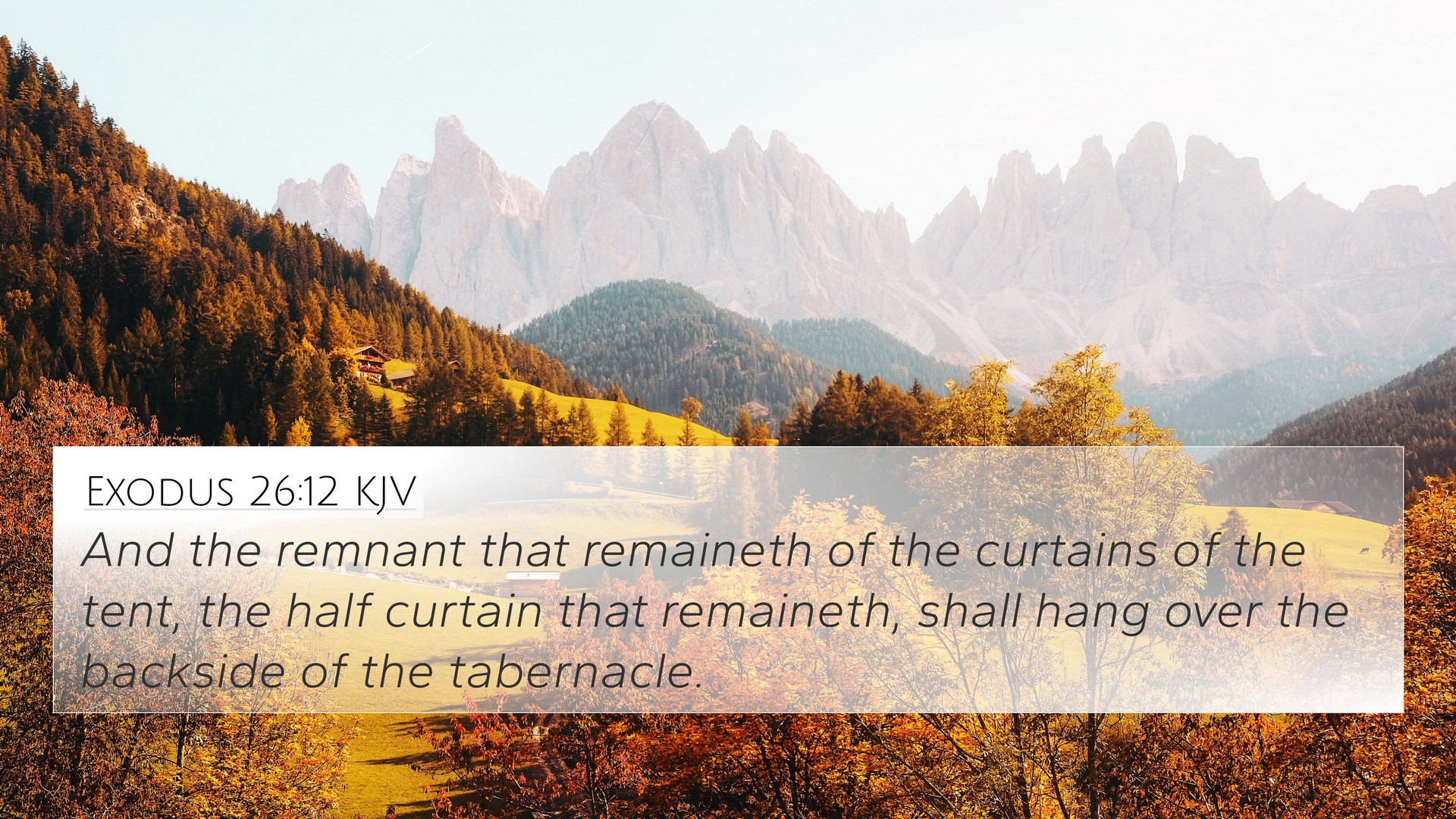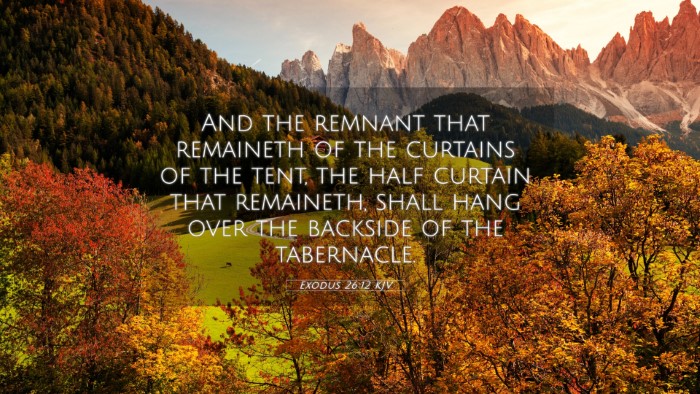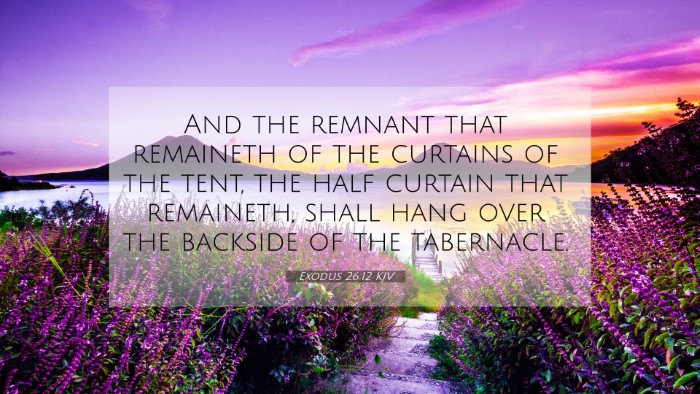Understanding Exodus 26:12
Exodus 26:12 states: "And the remnant that remaineth of the curtains of the tent, the half curtain that remaineth, shall hang over the back side of the tabernacle."
Meaning and Interpretation
This verse provides specific instructions on the construction of the Tabernacle, focusing on the materials and their utilization. It outlines the importance of the remaining materials, which had significant symbolic and practical implications in the context of Israel's worship and God's dwelling among His people.
Insights from Commentators
Several public domain commentators offer valuable insights into this scripture:
-
Matthew Henry:
Henry emphasizes the divine attention to detail in the design of the Tabernacle. The remaining curtains symbolize the grace and provision of God, ensuring that nothing was wasted, and that the dwelling place of God was fully covered and protected.
-
Albert Barnes:
Barnes notes that the mention of the remnant highlights God's meticulous planning. The use of surplus materials signifies the careful stewardship expected from the Israelites and reflects God's glory in their worship space.
-
Adam Clarke:
Clarke elaborates on the functional aspects of the curtains, suggesting that they served both practical purposes—such as insulation and protection—while also acting as a metaphorical covering for the presence of God among His people.
Thematic Connections
Exodus 26:12 intersects with various biblical themes such as God’s presence, preparation for worship, and the sacredness of space. The use of the Tabernacle as a dwelling place for God indicates His desire to be among His people.
Cross-References
This verse connects with several other scripture passages that enhance its meaning:
- Exodus 25:8: “And let them make me a sanctuary; that I may dwell among them.”
- Hebrews 9:1-2: “Then verily the first covenant had also ordinances of divine service, and a worldly sanctuary. For there was a tabernacle made; the first, wherein was the candlestick, and the table, and the shewbread; which is called the sanctuary.”
- John 1:14: “And the Word was made flesh, and dwelt among us (and we beheld his glory, the glory as of the only begotten of the Father), full of grace and truth.”
- 2 Corinthians 5:1: “For we know that if our earthly house of this tabernacle were dissolved, we have a building of God, an house not made with hands, eternal in the heavens.”
- Revelation 21:3: “And I heard a great voice out of heaven saying, Behold, the tabernacle of God is with men, and he will dwell with them, and they shall be his people, and God himself shall be with them, and be their God.”
- Leviticus 26:11-12: “And I set my tabernacle among you: and my soul shall not abhor you. And I will walk among you, and will be your God, and ye shall be my people.”
- Psalm 27:4: “One thing have I desired of the Lord, that will I seek after; that I may dwell in the house of the Lord all the days of my life, to behold the beauty of the Lord, and to inquire in his temple.”
Exploring Connections between Bible Verses
Understanding Exodus 26:12 enriches our grasp of the broader narrative of Scripture. The connections between this verse and others further highlight the themes of God’s presence, worship, and the significance of the Tabernacle as a foreshadowing of Christ’s incarnation and the eventual establishment of the Church as a spiritual house.
Tools for Bible Cross-Referencing
Engaging with Bible cross-references can be facilitated by various resources:
- Bible concordances to locate related passages.
- Cross-reference Bible study guides for thematic exploration.
- Bible reference resources that assist in identifying connections between verses.
- Bible chain references to trace thematic developments across the Scriptures.
Conclusion
Exodus 26:12 is not merely a verse of construction; it symbolizes the relationship between God and His people, His provisions, and the importance of worship. By exploring this verse through cross-referencing, deeper theological meanings emerge, showing the continuity and divine narrative throughout the Bible.


